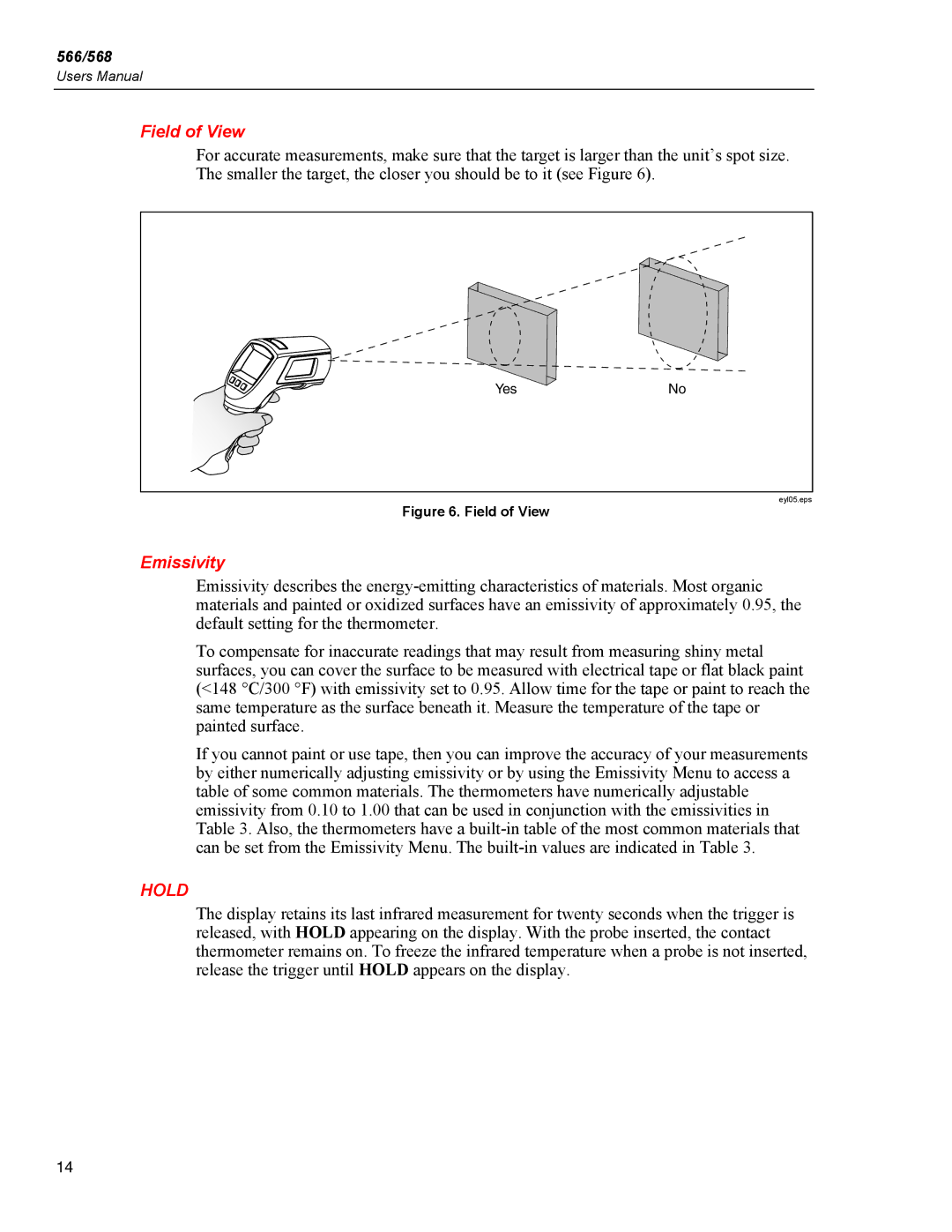
566/568
Users Manual
Field of View
For accurate measurements, make sure that the target is larger than the unit’s spot size. The smaller the target, the closer you should be to it (see Figure 6).
Yes | No |
| eyl05.eps |
Figure 6. Field of View
Emissivity
Emissivity describes the
To compensate for inaccurate readings that may result from measuring shiny metal surfaces, you can cover the surface to be measured with electrical tape or flat black paint (<148 °C/300 °F) with emissivity set to 0.95. Allow time for the tape or paint to reach the same temperature as the surface beneath it. Measure the temperature of the tape or painted surface.
If you cannot paint or use tape, then you can improve the accuracy of your measurements by either numerically adjusting emissivity or by using the Emissivity Menu to access a table of some common materials. The thermometers have numerically adjustable emissivity from 0.10 to 1.00 that can be used in conjunction with the emissivities in Table 3. Also, the thermometers have a
HOLD
The display retains its last infrared measurement for twenty seconds when the trigger is released, with HOLD appearing on the display. With the probe inserted, the contact thermometer remains on. To freeze the infrared temperature when a probe is not inserted, release the trigger until HOLD appears on the display.
14
